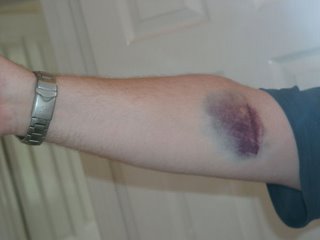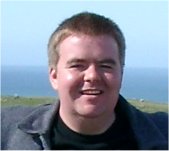I studied engineering at university and now work in the IT industry. Some people might think that this would make me a fan of advanced technology. In all fairness they would be correct, I have a very fast PC, a mobile phone, MP3 player and even a GPS. However I am also a fan of appropriate technology. By this I mean technical solutions that are no more advanced than they need to be. This philosophy can best be summed up by two well known sayings: -
The right tool for the right job.
If it's not broke, don't fix it.
Why put nails in a piece of wood with the nail-o-matic ultra 4000 when a hammer is cheaper, simpler, doesn't require batteries and if properly cared for can last a lifetime? I suppose this does tie in with my time studying engineering. Engineers like to solve problems and they usually like their solutions to be simple and elegant.
It is when market forces come into play that technology is driven forward further than is really required. I want a phone that can make calls, send text messages and has a decent battery life. As a consumer, phone manufacturers want me to be able to stream TV clips over 3G networks because if I don't they won't be able to sell me their new phone. These market forces have given us a population desperate to buy gadgets that will only have 5% of their features used.
But what about people who can in no way be called consumers. People in the developing world are among the most vulnerable in the world. For people whose main concern is getting clean water and a steady supply of food appropriate technology can have a profound effect on their lives. It can help them solve problems such as transport, agriculture, home building, energy, water supply and purification. It can help them create successful and profitable industries. Because the technology is simple it is reliable and can easily be maintained, improved and replicated by local people using locally available materials. It doesn't need to be complicated, it just needs to work and it certainly never needs to be able to stream TV clips over 3G networks.
One charity that has done incredible work in this area is WaterAid. WaterAid works in 17 countries across Africa and Asia. When they come to a village they help local people design and install clean water supplies and sanitation, they also teach those people all they need to know to maintain these systems as well as the importance and application of proper hygiene. Having a clean water supply can lead to incredible changes for a village. Women and children who had to walk for miles every day to collect water now have their time freed up for other things. This means more time for family life, education, work on other areas that improve their financial wellbeing. Clean local water supplies and sanitation also dramatically reduce health issues related to water-related diseases. WateAid have helped some of the 1 billion people in the world who do not have access to clean water.
I used to walk past a bookshop on my way to work. It was called "The Intermediate Technology Bookshop". The books in the window fascinated me, they covered such topics as wind energy, water purification, solar cookers, human and animal powered transport, hut building, agriculture and international trade on a small scale. If an asteroid hit us and civilization went back to the stone age this shop would tell the lucky finder everything they needed to know to pick up the pieces and start again. The shop closed (perhaps I should have gone inside and actually bought something) to be replaced by a down-market Italian restaurant which also closed to be replaced by an empty shop.
Fortunately the shop was just one part of the Intermediate Technology Development Group who have renamed themselves to Practical Action (Their site is even more fascinating than the bookshop was). Practical Action are a charity that design and implement a range of solutions to problems faced by people in developing nations around the world. They also make many of their designs freely available online along with a host of technical information. Go on, try making some of them, I dare you. Practical Action have provided such life changing solutions as: -
Solar powered cookers.
Improved wood burning stoves that require less fuel and produce less smoke (Excess levels of cooking smoke kills 1.5 million people a year.).
Gravity powered rope ways in Nepal.
Composting toilets.
Wind and hand powered water pumps.
Bicycle trailers and bicycle ambulances.
Small scale electricity generation from wind, hydro, and biogas.
Solar water distillation.
Practical Action was founded by a guy called E.F. Schumacher, an economist who wrote a book called "small is beautiful: a study of economics as if people mattered" The book suggested that the current economic model of profit and progress that leads to large corporations was damaging both the environment and the developing world. It is hard to watch the news without at least considering that he might have had a point. Schumacher attempted to befriend tree-hugging hippies and scruffy communists alike by suggesting that a better way for man to move forward is the use of intermediate technology based on communal ownership and regional workplaces using local materials. When he published the book 33 years ago it caused a sensation and although the developed world clearly didn't pay that much attention the methods he described are being used by people through the developing world (aided by many fine NGO's) to create improved resilience, prosperity and quality of life for themselves. It can put the lives and futures of people across the world into their own hands. It can help make a better world.

